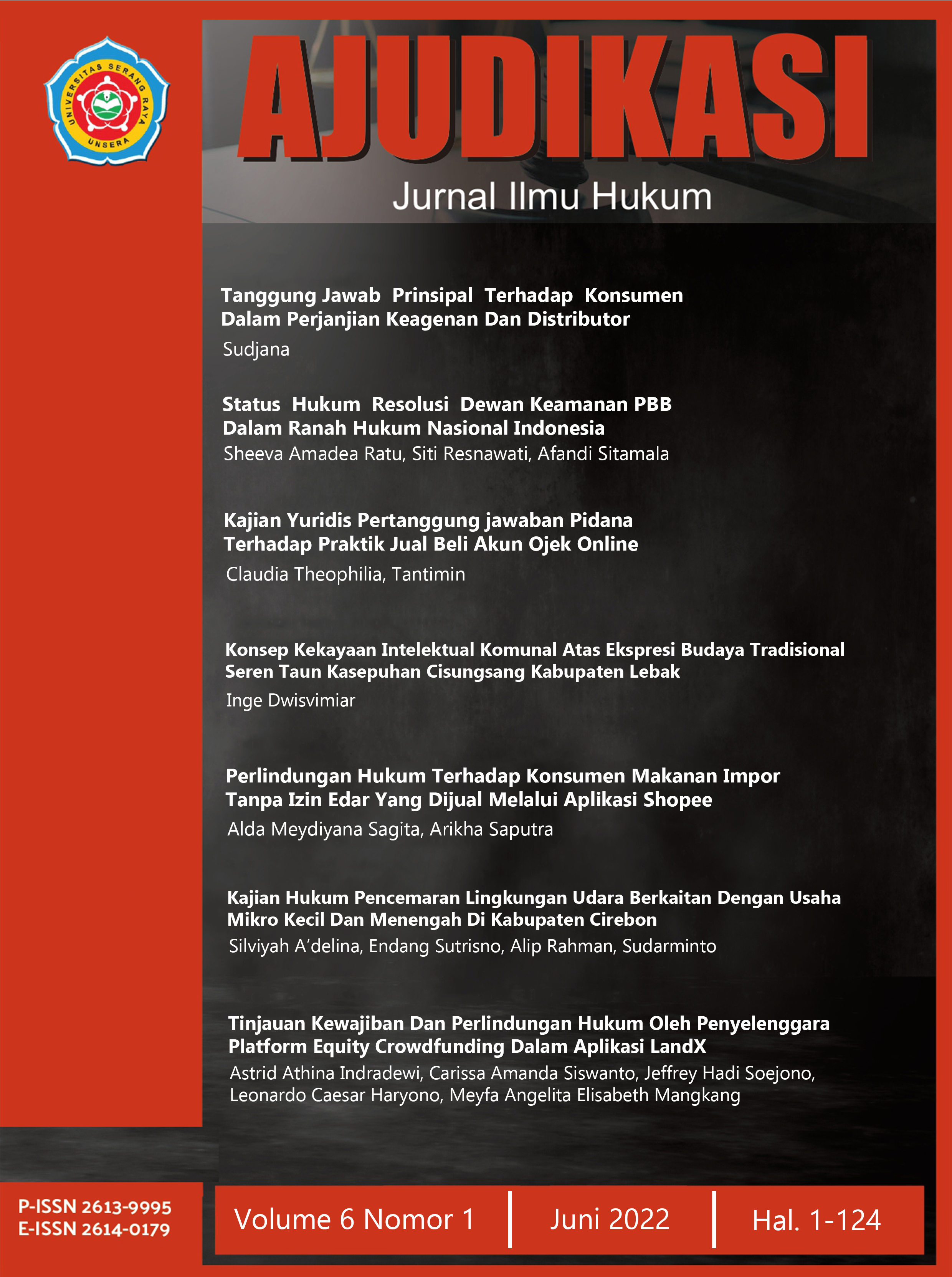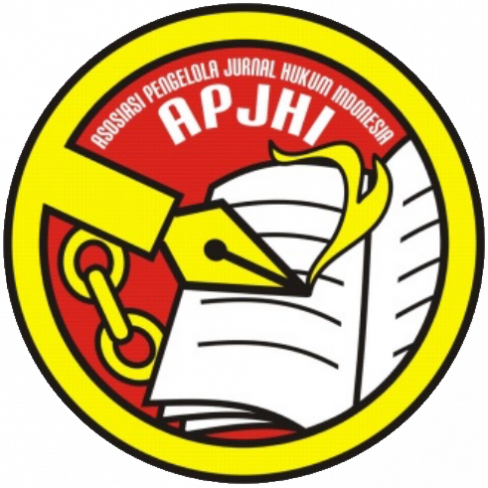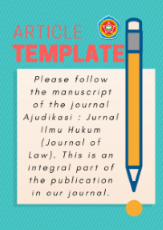Status Hukum Resolusi Dewan Keamanan PBB Dalam Ranah Hukum Nasional Indonesia
DOI:
https://doi.org/10.30656/ajudikasi.v6i1.4553Keywords:
International Law, United Nations, Security CouncilAbstract
The United Nations Security Council (UNSC) is one of the six principal organs of the United Nations (UN), charged with ensuring international peace and security, recommending the admission of new UN members to the General Assembly, and approving any changes to the UN Charter. Its powers include establishing peacekeeping operations, enacting international sanctions, and authorizing military action. The UNSC is the only UN body with the authority to give a binding resolution on member states. This research shows that the Security Council as the major of the United Nations has the main task of maintaining international peace and security as mandated in the United Nations Charter. Actions that can be taken by the Security Council are to investigate any dispute that is deemed to be a threat to international peace and security, provide recommendations on method of how to dispute contention, and take action against aggression. In carrying out its functions, the Security Council need to move accordingly to the provisions of the United Nations Charter and applying the international law principles in particular, the principle of peaceful and fair settlement of a dispute. With the existing resolution, each country must adopt every resolution to regulate it in their country include Indonesia.
Downloads
References
Buku :
Adolf, Huala. Hukum Penyelesaian Sengketa Internasional. Raja Grafindo Persada: Jakarta, 2004.
Kusumaatmadja, Mochtar and Etty R. Agoes. Pengantar Hukum Internasional. Bandung, : Alumni, 2015.
Marzuki, Peter Mahmud. Penelitian Hukum. Jakarta : Kencana Preneda Media Group, 2005.
Merrils, John.The means of Dispute Settlement, International Law, Oxford Universiy Press, 2003.
Saifuddin, Anwar. Metode Penelitian. Yogyakarta : Pustaka Pelajar Offset, 2001.
Starke, J.G and Bambang Iriana Jayaatmaja. Pengantar hukum internasional. Jakarta : Sinar Grafika, 1992.
Sunggono, Bambang.Metodologi Penelitian Hukum. Jakarta : Rajawali Pers, 2010.
Suryokusumo, Sumaryo. Studi Kasus Hukum Organisasi Internasional. Bandung : Alumni, 1993.
Jurnal
Black, Henry Campbell. “Black’s Law Dictionary.†Virginia Law Review Vol. 20, No. (4). JSTOR, 493. doi:10.2307/1066423.
Leovardi Tirta, A.“Kekuatan Resolusi Majelis Umum Pbb (Unga) Dan Dewan Keamanan Pbb (Unsc) Sebagai Sumber Hukum Internasional.â€, Jurnal Yustika Vol. 14, No. (1): 93–107. 2011.
Riswan Efendi Habeahan, Peranan Dewan Keamanan PBB Dalam Penyelesaian Sengketa Internasional (studi Kasus Vietnam Utara-Vietnam Selatan), Universitas Sumatera Utara, 2017.
Peraturan Perundang-Undangan
Undang-Undang Dasar Negara Republik Indonesia 1945
Undang-Undang Republik Indonesia Nomor 12 Tahun 2011 Tentang Pembentukan Peraturan Perundang-Undangan
Piagam Perserikatan Bangsa-Bangsa
Dokumen
Derek Bowett, The Impact of Security Council Decisions on Dispute Settlement Procedures.
Website/Internet
Dedek Buana, http://artikelddk.com/penyelesaian-sengketa-internasional-secara-damaidan-kekerasan/
Normand Edwin Elnizar, Dirjen HPI Kemenlu: Resolusi DK PBB Mengikat Hukum Nasional Indonesia, 25 Juli 2018 https://www.hukumonline.com/berita/a/dirjen-hpi-kemenlu--resolusi-dk-pbb-mengikat-hukum-nasional-indonesia-lt5b5820dfc3f61?page=3
Benny Setianto, http://bennysetianto.blogspot.com/2006/30/03/sumber-hukum-internasional.html
United Nations, “Security Councilâ€, https://www.un.org/en/model-united-nations/security-council
United Nations. “Procedural Voteâ€. 23 November, 2020 https://www.securitycouncilreport.org/un-security-council-working-methods/procedural-vote.php
Downloads
Published
Issue
Section
License
Authors who publish with this journal agree to the following terms:
Authors retain copyright and grant the journal right of first publication with the work simultaneously licensed under a Creative Commons Attribution License that allows others to share the work with an acknowledgment of the work's authorship and initial publication in this journal.
Authors can enter into separate, additional contractual arrangements for the non-exclusive distribution of the journal's published version of the work (e.g., post it to an institutional repository or publish it in a book) with an acknowledgment of its initial publication in this journal.
Authors are permitted and encouraged to post their work online (e.g., in institutional repositories or on their website) before and during the submission process, as it can lead to productive exchanges and earlier and greater citation of published work.
All articles in Ajudikasi : Jurnal Ilmu Hukum can be disseminated provided they include the identity of the article and the source of the article (Ajudikasi : Jurnal Ilmu Hukum). The publisher is not responsible for the contents of the article. The content of the article is the sole responsibility of the author
Ajudikasi : Jurnal Ilmu Hukum is lincensed under a Creative Commons Attribution-ShareAlike 4.0 International License.










1.png)
.png)
.png)





.png)
.png)
.png)
.png)





.png)







